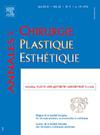[重新思考整形外科的科学诚信:对编辑和机构责任的反思]。
IF 0.5
4区 医学
Q4 SURGERY
引用次数: 0
摘要
整形外科本质上是一门创新学科,历史上一直依靠临床病例报告来推进其技术。这些病例通常是独特的,是传播突破的宝贵工具,特别是在以高度个性化实践和手工手术方法为标志的领域,随机试验通常是不切实际的。然而,这种对病例报告的依赖引起了重大的伦理问题。在多学科背景下,贡献的归属往往仍然不明确。不当行为,如未经授权的出版物或缺乏机构认可,威胁到科学产出的完整性。随着人工智能重塑生物医学研究——自动化文献综述和荟萃分析——原始病例报告因其独特性而逃脱了这些预测模型。它们的启发式价值充分证明了它们被纳入科学证据的范围。因此,它们的出版必须受到严格监管。重新定义我们领域的出版标准是必要的。这包括系统地应用国际指南(CARE、SCARE、STROBE、GRIPP2),提交前必须获得机构批准,对初级工作人员进行正式的研究伦理培训,以及在患者同意和作者归属方面完全透明。当临床病例严谨、新颖、背景良好时,它仍然是外科进展的基石。通过保护它不被误用,我们保留了它的科学和教育价值。本文章由计算机程序翻译,如有差异,请以英文原文为准。
Repenser l’intégrité scientifique en chirurgie plastique : réflexions sur les responsabilités éditoriales et institutionnelles
La chirurgie plastique, discipline de l’innovation, s’est historiquement appuyée sur les cas cliniques pour faire progresser ses techniques. Ces cas, souvent uniques, constituent un levier précieux de diffusion des avancées, notamment face aux limites méthodologiques des essais randomisés dans ce champ aux pratiques individualisées et techniques artisanales. Cependant, cette dépendance aux cas cliniques soulève des enjeux éthiques majeurs. L’attribution des contributions dans des contextes multidisciplinaires reste floue, et certains abus – comme la publication non autorisée ou sans reconnaissance de l’environnement institutionnel – remettent en cause l’intégrité scientifique. Face à l’émergence de l’intelligence artificielle qui transforme la recherche biomédicale en automatisant les revues de littérature et les méta-analyses, les cas cliniques originaux, par leur unicité, échappent à ces modèles prédictifs. Leur valeur heuristique, justifie leur pleine reconnaissance dans l’éventail des preuves scientifiques. Ils doivent ainsi rester des objets de publication soigneusement encadrés. Il est donc important de redéfinir les normes de publication dans notre spécialité ce qui implique : l’application systématique de lignes directrices (CARE, SCARE, STROBE, GRIPP2), l’exigence d’un aval hiérarchique avant toute soumission, une formation à l’éthique de la publication pour les plus jeunes, et une transparence absolue sur les consentements patients et l’attribution des auteurs. Le cas clinique, s’il est rigoureux, novateur et bien contextualisé, reste un pilier incontournable du progrès chirurgical. En le protégeant des dérives opportunistes il conserve toute sa valeur scientifique et pédagogique.
Plastic surgery, by nature an innovative discipline, has historically relied on clinical case reports to advance its techniques. Often unique, these cases are a valuable vehicle for disseminating breakthroughs — especially in a field marked by highly individualized practices and artisanal surgical approaches, where randomized trials are often impractical. However, this reliance on case reports raises significant ethical concerns. In multidisciplinary settings, attribution of contributions often remains ambiguous. Misconduct, such as unauthorized publications or omission of institutional recognition, threatens the integrity of scientific output. As artificial intelligence reshapes biomedical research — automating literature reviews and meta-analyses — original case reports, by their singularity, escape these predictive models. Their heuristic value fully justifies their inclusion within the spectrum of scientific evidence. For this reason, their publication must be tightly regulated. Redefining publication standards in our field is essential. This includes the systematic application of international guidelines (CARE, SCARE, STROBE, GRIPP2), mandatory institutional approval before submission, formal training in research ethics for junior staff, and full transparency regarding patient consent and authorship attribution. When rigorous, novel, and well-contextualized, the clinical case remains a cornerstone of surgical progress. By safeguarding it from opportunistic misuse, we preserve its scientific and educational value.
求助全文
通过发布文献求助,成功后即可免费获取论文全文。
去求助
来源期刊
CiteScore
1.00
自引率
0.00%
发文量
86
审稿时长
44 days
期刊介绍:
Qu''elle soit réparatrice après un traumatisme, pratiquée à la suite d''une malformation ou motivée par la gêne psychologique dans la vie du patient, la chirurgie plastique et esthétique touche toutes les parties du corps humain et concerne une large communauté de chirurgiens spécialisés.
Organe de la Société française de chirurgie plastique reconstructrice et esthétique, la revue publie 6 fois par an des éditoriaux, des mémoires originaux, des notes techniques, des faits cliniques, des actualités chirurgicales, des revues générales, des notes brèves, des lettres à la rédaction.
Sont également présentés des analyses d''articles et d''ouvrages, des comptes rendus de colloques, des informations professionnelles et un agenda des manifestations de la spécialité.

 求助内容:
求助内容: 应助结果提醒方式:
应助结果提醒方式:


